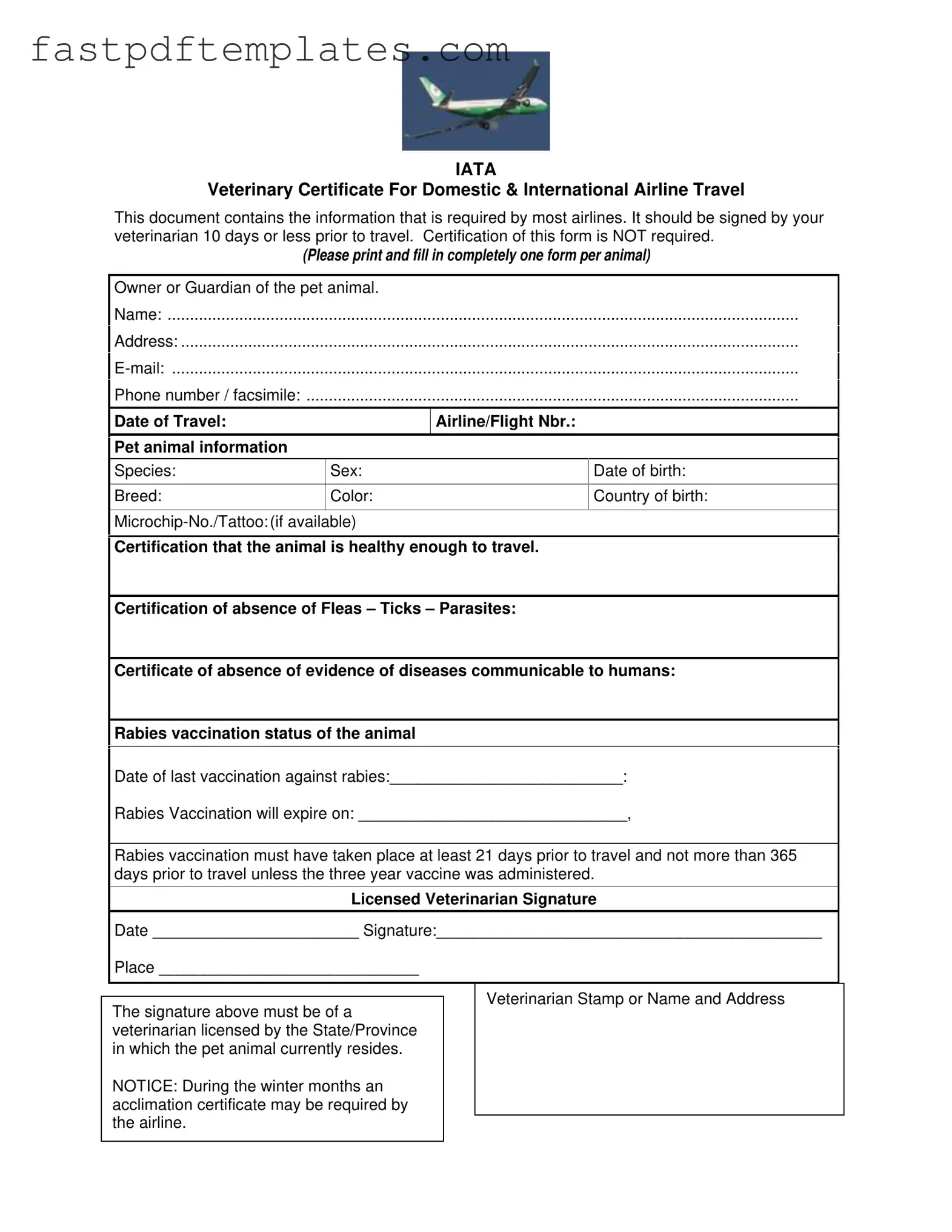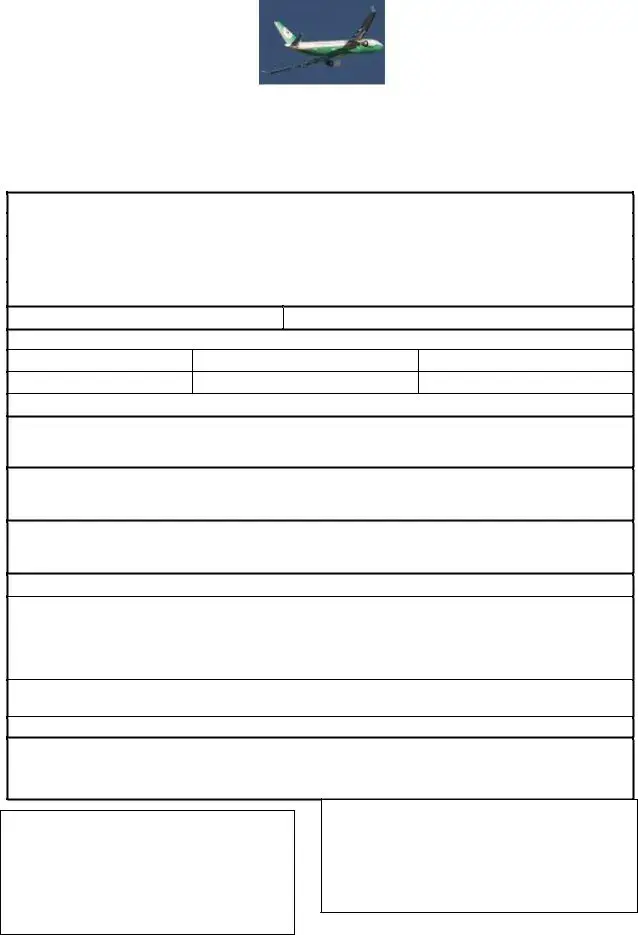Blank Veterinary Certificate Travel Form
The Veterinary Certificate Travel form is a crucial document for pet owners planning to travel with their animals, whether domestically or internationally. This form provides essential information required by most airlines and must be signed by a licensed veterinarian within ten days of travel. It ensures that the animal is healthy enough to travel and meets vaccination requirements, including rabies status.
Access Document

Blank Veterinary Certificate Travel Form
Access Document
Your form still needs completion
Complete your Veterinary Certificate Travel online and download the final PDF.
Access Document
or
Click for PDF Form

